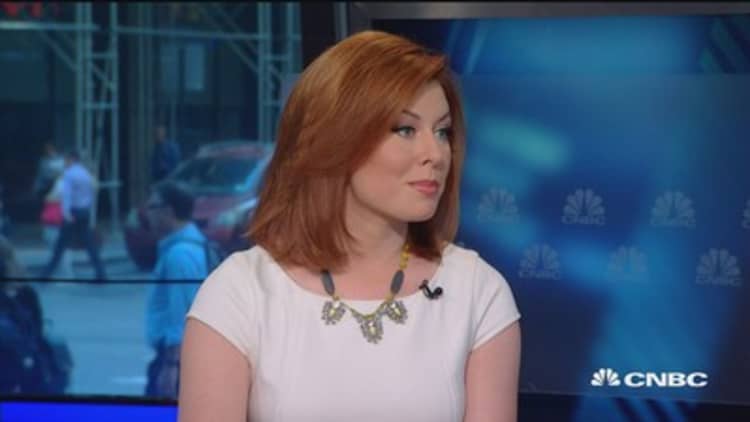With the Republican National Convention in full swing in Cleveland and just over three months until Election Day, voters are watching Donald Trump and Hillary Clinton closely on the campaign trail.
But a new poll finds that votes from a large portion of business owners are still up for grabs.
Data from nonpartisan small-business networking platform Manta finds 35 percent of small-business owners are still undecided on who they are voting for in November. Among those who are decided, 37 percent say they're voting for Trump, and 28 percent say they back Clinton.
And it's not as if these business owners aren't planning to head to the polls in November. Manta finds that 86 percent plan to vote in the general election, while 14 percent plan to stay home. Asked which party they align with, 34 percent say they're Republican, 27 percent identify as Democrat and 39 percent say "other." Manta surveyed 652 small-business owners for the poll.

Small-business advocates say the group remains largely undecided due to a lack of clarity on what either candidate plans to do for Main Street.
The conservative lobbying group the National Federation of Independent Business has consistently found government regulations to be a top issue for its membership, but neither Trump nor Clinton have laid out a plan to tackle the problem in a way that has resonated with small businesses.
"We would like to see both candidates talk about regulations in detail," says Jack Mozloom, NFIB spokesman. "It's not enough to talk 'red tape.' We would like to know which regulations they'd like to modify."
Both Trump and Clinton have spoken frequently about tax reform. Trump vows no business of "any size" will pay more than 15 percent of their income in business taxes and has vowed to repeal the estate tax, which taxes transferred property post-death, a concern for entrepreneurs. His personal income plan has four brackets — 0 percent, 10 percent, 20 percent and 25 percent — which is key for small business owners, as many file individually.
Clinton has spoken about enacting tax reform that is friendlier to small businesses and voted against repealing the estate tax.
On the wage front, another top issue, Trump has wavered on his plans for enacting a higher federal minimum wage, which has been stagnant at $7.25 an hour since 2009. He told NBC in May that "states should decide" their own wages. Clinton has been vocal about supporting $12 at the federal level and $15 at the local level where applicable.
Health-care reform is also a major concern on Main Street. Trump has voted to repeal and replace Obamacare with a national marketplace on his first day in office, while Clinton supports Obama's Affordable Care Act and would like to see it strengthened.
"Regulatory hurdles are significant, and health care in particular is heavy on the minds of entrepreneurs," says Molly Day, spokeswoman for the nonpartisan National Small Business Association. "No one has a concrete plan."
Mozloom adds, "They both have work to do to earn the small-business vote."


